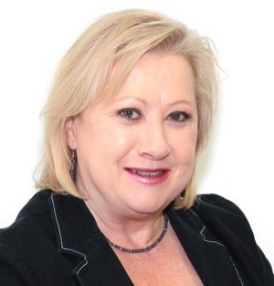Wealth Management

Jenny Williams
Senior Servicing Consultant
__________________________________________________________________________________________________
Discretionary investments
How and when these can be used in the pursuit of a well-structured financial plan
 Financial planning is generally comprised of either an accumulation or disinvestment phase. You are either saving up for – or spending your savings on – something. Savings can take the form of formal – usually contractual – retirement savings such as pension funds, retirement annuities, compulsory annuities, and preservation funds. Industry speak for these tax approved investments is ‘compulsory’.
Financial planning is generally comprised of either an accumulation or disinvestment phase. You are either saving up for – or spending your savings on – something. Savings can take the form of formal – usually contractual – retirement savings such as pension funds, retirement annuities, compulsory annuities, and preservation funds. Industry speak for these tax approved investments is ‘compulsory’.
Financial planning should also consist of investments you make through your own choice, without being governed or constrained by tax deductible contribution, and withdrawal limits. These voluntary financial planning products and tools are colloquially termed ‘discretionary’ investments.
Financial planners inevitably combine compulsory and discretionary investments for holistic plans which cater not only for retirement funding, but shorter-term objectives such as education, university, cars, and healthcare, as well as providing for a contingency fund.
So what is a discretionary investment, and how does it work?
These voluntary savings products are funded with after-tax money, and when structured optimally, can provide tax advantages within your portfolio. Here are several common, though sometimes misunderstood discretionary investment vehicles.
Endowment policies
Endowments are suitable (and often attractive) for investors whose tax rate is 30% or higher. The portfolio is taxed in the hands of the underwriting insurance company at a rate of 30%, regardless of the actual tax rates of the policy holders. The maturity benefit of an endowment (which means any value after a five year term) is tax free. Any withdrawals from the endowment after five years are deemed to be a capital withdrawal and not income, and remain tax free (remembering that the portfolio itself is taxed annually in the hands of the insurer).
During the first five years only one withdrawal is permitted, limited to a return of the amount invested plus 20% of the last two years premiums. If this is exceeded, the five year restriction starts again. This restriction must be factored into any financial planning.
As with all insurance policies, if a dependent is named, the proceeds, though included in your estate, do not incur executors fees. The proceeds are included in your total estate for the purpose of calculating estate duty. Even if a five year term is elected, you may continue with the endowment after its maturity date. You are not compelled to terminate the policy. Tip: Never commit to purchasing a long term endowment. The benefits are the same as a five year term, only the costs and commissions are more!
Do discuss the underlying investment portfolio with your advisor before beginning an endowment. Depending on the elected underwriter, there are as many portfolios to choose from as with unit trusts, including the full gambit of cash management and offshore exposure. The endowment should rather be seen as the ‘wrapper’ into which an appropriate portfolio (or portfolios) is inserted.
Tax free savings account (TFSA)
 The (relatively) ‘new kid on the block’ is the TFSA. Legislated in 2015 for the first time, TFSA’s provide a limited investment opportunity whereby the growth within the investment, whether it’s interest, income, dividends, or capital gains, isn’t taxed. The current annual limit on a TFSA is R36 000, and there’s a lifetime limit of R500 000.
The (relatively) ‘new kid on the block’ is the TFSA. Legislated in 2015 for the first time, TFSA’s provide a limited investment opportunity whereby the growth within the investment, whether it’s interest, income, dividends, or capital gains, isn’t taxed. The current annual limit on a TFSA is R36 000, and there’s a lifetime limit of R500 000.
The big draw-card for these investments is that there is no minimum investment term and withdrawals can take place at any time with no restrictions or limitations on access to the investment, with no tax payable on withdrawn amounts.
T’s and C’s exist on re-investment, as new contributions are added to the existing contributions to calculate the total limits (annual and lifetime) previously mentioned.
Regardless of one’s portfolio size, it is an obvious election to always include a TFSA in the construction of a financial plan.
Unit trust

Probably the best known of the discretionary investment options, unit trusts provide for lots of flexibility with limited rules and regulations. Accommodating lump sums and regular contributions, there’s no minimum investment period or maximum investment amount. The range of investment portfolios is vast, covering all conceivable local and international choices. Pricing varies from one asset manager to another.
Regulation requires unit trusts to disclose their Total Investment Charge (TIC), and this should be one of many considerations before constructing one’s portfolio.
Whereas a direct portfolio of shares will require Capital Gains Tax (CGT) to be paid each and every time a share is sold, within a unit trust no CGT is incurred within the portfolio, regardless of the number of shares bought or sold. CGT does apply once the investor redeems any of the units, so a careful election of the appropriate risk adjusted portfolio is recommended, so that you don’t need to sell your unit trust to adjust for small changes in risk profile.
The cost of administering the unitised portfolio which makes up the unit trusts is also considerably less than that required to manage a direct share portfolio. There are strict regulations governing the requirements for unit trusts to issue daily prices and pay out unit holders once they’ve redeemed. All unit trusts fall under the auspice of the FSCA, South Africa’s financial regulator.
Discretionary investments are not limited to South African products. Currently South African tax payers are permitted to invest up to R11 mill per annum directly offshore, of which R10 million requires a tax clearance certificate. Effectively there are no constraints anymore as to where one is permitted to invest one’s money.
 GTC strongly advocates professional planning when seeking to structure either a local and/or offshore portfolio.
GTC strongly advocates professional planning when seeking to structure either a local and/or offshore portfolio.
There are many other discretionary investment opportunities. These would include many different assets from the purchase of your house and cryptocurrencies, to gold coins. GTC has limited this article to those which are unitised, governed by the FSCA and which we would use in portfolio construction.
Discussion with an accredited professional planner is highly recommended.






